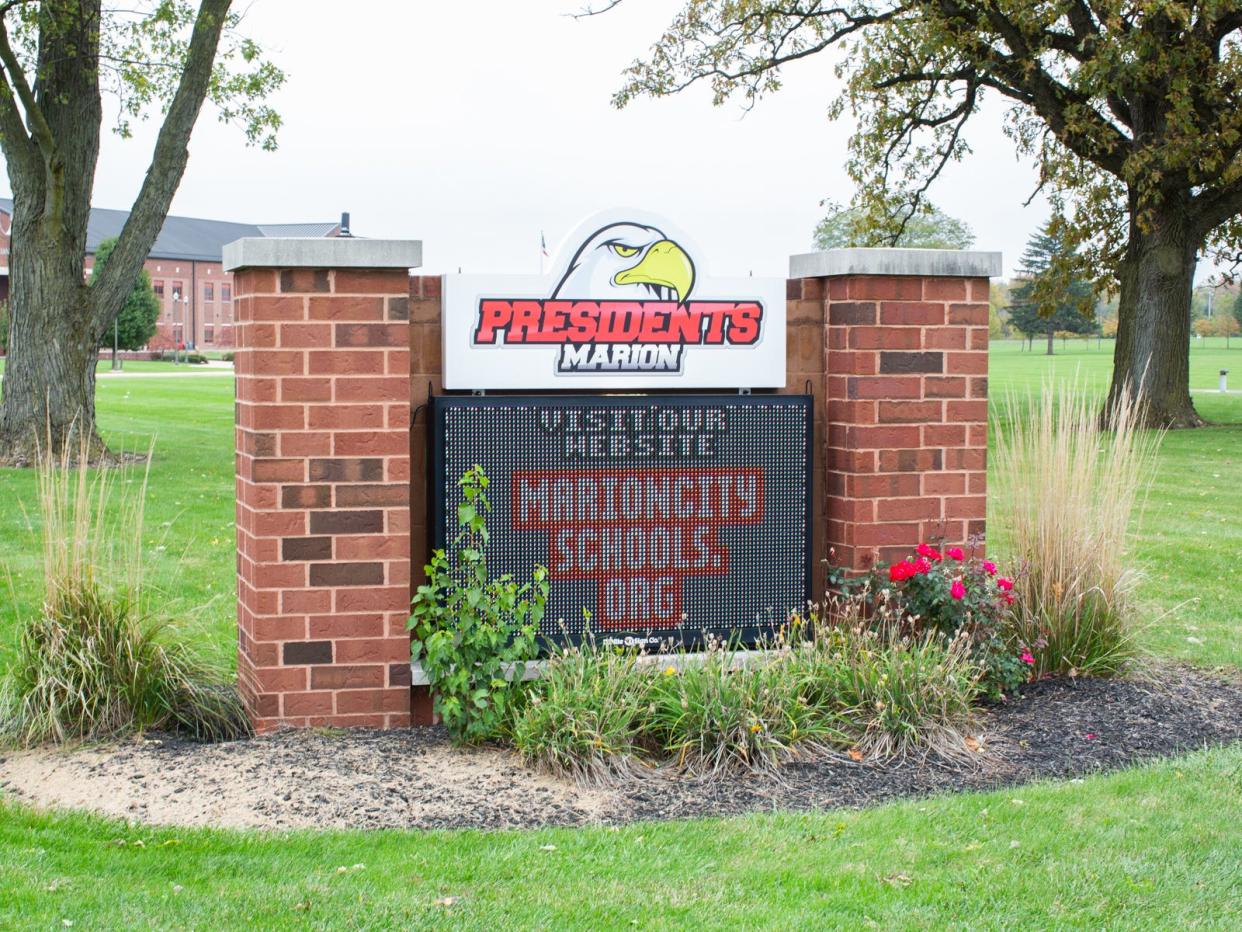Marion City Schools equity audit to take eight months to understand district inequities

Marion City Schools' equity audit has launched under a thorough process focusing on emotional safety, transparency and returning to the district's mission of "inspiring a community of achievement."
After approving an equity audit to understand the internal situation regarding diversity, equity and inclusion within Marion City Schools, the district's board received the first of what will become monthly check-ins with district Diversity and Equity Supervisor Johnnie Jackson in the July board of education meeting.
Jackson explained to the board he was to meet with Mosaic Education Network, the consulting firm performing the audit led by Dr. Melissa Crum and her team of researchers on July 20 where there would be a better understanding of next steps and a timeline.
Since that meeting, the timeline of performing the audit to gauge what Jackson called the "internal temperature" of equities and inequities within the district was decided to take between seven and eight months of gathering both quantitative and qualitative research with students and staff.
“We’ve had one meeting since the last board meeting, and that meeting was to talk about a timeline that we’re going to create together and really kind of think about the next seven to eight months, because that’s how long the process will go for us to do an equity audit,” Jackson said.
Currently in the process, the district has sent policies and documents for Mosaic to review with the goal of the firm finding ways they can be improved moving forward. This included the district's Educational Equity and Social Justice Resolution that was approved in 2020.
This is a facet of the quantitative research portion of the audit that will also look into district procedures to make them more equitable for students of color, female students, LGBTQ+ students and students of lower socioeconomic status.
The next steps of the process include sending out a survey to staff and forming focus groups, the qualitative portion of the audit, when the school year begins. Jackson said he would have a more clear idea of the official rollout of what working with staff, students and the community would look like after Mosaic finishes auditing the district's policies.
Jackson said the entire process will prioritize the safety of those sharing and the transparency toward how the data gathered will be used to make Marion City Schools a more equitable district.
"When you’re talking about race or class or gender or any of the topics where people might be a marginalized group, people feeling safe enough to share, being a community member or student or staff, that’s a very important piece of this work is the safety," he said.
In practice, this will look like organizing focus groups with equal power in the room, meaning teachers will be placed with teachers, administrators will be placed with administrators and students will be placed with students so each individual feels he or she can share experiences of equity and inequity that could be difficult to discuss.
At the end of the research, the district will be given a report on the assets Marion City Schools already has, including strong community partners like the Peace and Freedom Committee and the Black Heritage Council. It will also highlight the opportunities for improvement and the areas of inequity.
“That report will basically give us recommendations of some of the places that we can grow as Marion City Schools to drive more equity in our district,” Jackson said.
As Interim Superintendent Steve Mazzi has stepped up to lead the district as the audit commences, Jackson said he has made sure that not only he but also district stakeholders are involved in the process, making space for the Marion Education Association, teachers, administrators, community members and students can all have a seat at the table.
“We’ve really been thinking strategically about what that communication looks like in involving people and being inclusive with decision making. I think that’s a really big thing right now with Steve is being inclusive with that decision making and making sure people are in the know of what’s happening with the equity audit,” Jackson said.
In the July 18 board meeting, Board Member Rocky Ratliff, who previously opposed the audit due to its cost of $55,000 to the district, asked Jackson what the team planned on doing to make sure students and staff take the audit seriously and answer questions honestly, wanting to make sure staff feel safe enough to share honestly without the fear of repercussions.
Mazzi addressed this concern by saying he would make himself available to helping stress the importance of the staff answering honestly for the success of the audit.
"I can come out of the superintendent's office and maybe even in conjunction with the MEA to talk about the importance of that so I can definitely have a conversation with Jami (Rawlins)," he said.
Jackson said later that he hoped the community would be willing to work with the equity auditors in order to return to the mission of the district for all students and staff.
“This equity audit is really going to get us back to inspiring a community of achievement, really our mission," he said.
"I think that is part of all good work is inspiration, community and achievement, so my hope and our hope is to really make sure as students and staff work with us over the next seven to eight months, that they are a part of that magic that we’re trying to grow here in Marion City Schools."
Story by: Sophia Veneziano (740) 564 - 5243 | sveneziano@gannett.com
This article originally appeared on Marion Star: Marion City Schools launches equity audit

